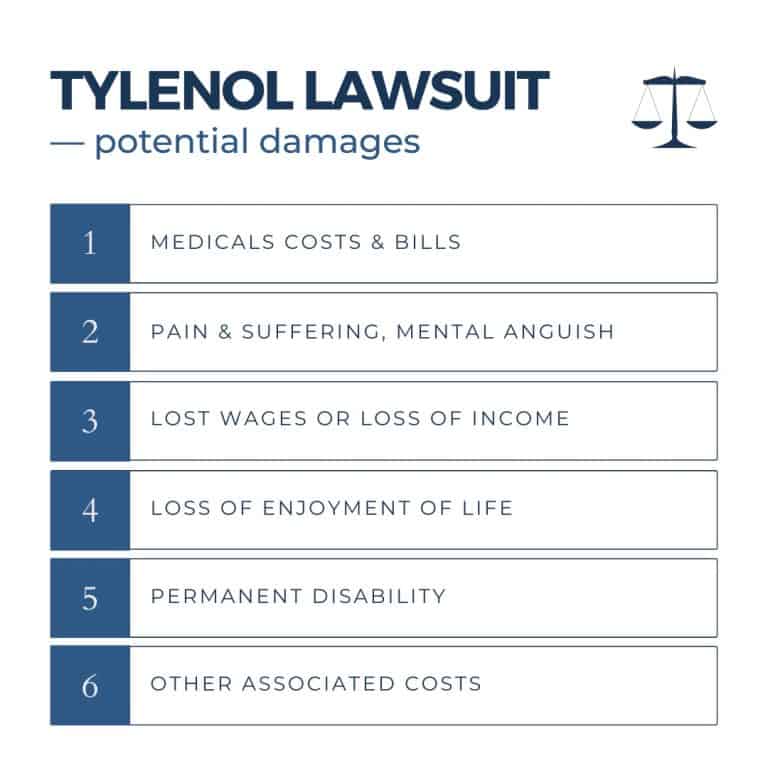- Last Updated: October 20th, 2025

Attorney Sean T. Keith has been a personal injury lawyer for 30+ years, a nationally recognized Top 100 Trial Lawyer, and top car accident lawyer & motor vehicle accident lawyer in Arkansas.
Legally Reviewed
This article has been written and reviewed for legal accuracy and clarity by the team of writers and attorneys at Keith Law Group and is as accurate as possible. This content should not be taken as legal advice from an attorney. If you would like to learn more about our owner and experienced injury lawyer, Sean T. Keith, you can do so here.
Fact-Checked
Keith Law Group does everything possible to make sure the information in this article is up to date and accurate. If you need specific legal advice about your case, contact us. This article should not be taken as advice from an attorney.
Sean Keith's Accollades & Practice Areas He Specializes In
- Over $20 Million recovered in Medical Device Injury Lawsuits.
- Over $13 Million recovered in Car Accident Lawsuits and other Motor Vehicle Accident Lawsuits.
- Over $100 Million recovered in total on behalf of clients.
- Sean represents clients in cases involving personal injuries, car accidents, motorcycle accidents, truck accidents, wrongful death, slip and falls, nursing home abuse cases, nursing home elopement cases, and more.
Autism & ADHD Linked to Tylenol Use During Pregnancy
Recent scientific studies have come out linking Tylenol use by pregnant women to Autism Spectrum Disorder (ASD), Attention Deficit Hyperactivity Disorder (ADHD), and other potential neurodevelopmental disorders.
These scientific claims are the basis for our law firm’s investigation into the Tylenol Autism ADHD Lawsuit.

If you have questions regarding the Tylenol Autism ADHD Lawsuit, you can find answers to most of them below or by checking our main Tylenol Autism ADHD Lawsuit page here.
If you or a loved one took Tylenol (Acetaminophen) while pregnant, and the child was subsequently diagnosed with Autism Spectrum Disorder (ASD), Attention Deficit Hyperactivity Disorder (ADHD), or another related neurodevelopmental disorder, you may qualify for a Tylenol Autism claim and/or a Tylenol ADHD claim.
Contact Keith Law Group for a free consultation or use the chatbot on our website to see if you qualify to file a claim instantly.
Table of Contents

Lawsuit Updates
Tylenol (Acetaminophen): Widely Used by Pregnant Women
Acetaminophen-based medications are used by an average of 52 million Americans every week (23% of the population), and is one of the most popular medications in the world.
Tylenol (active ingredient Acetaminophen) is used by an estimated 65% of pregnant women in the United States as a pain reliever and fever medication.
In recent years, health research has found consistent associations between exposure to acetaminophen and the onset of certain neurodevelopmental disorders such as Autism Spectrum Disorder (ASD), Attention Deficit Hyperactivity Disorder (ADHD), Complex Developmental Disorder, and other neurodevelopment outcomes.
Although the drug has been associated with a reduced risk of stillbirth and preterm birth, consistent association between acetaminophen exposure and Autism Spectrum Disorder, Attention Deficit Hyperactivity Disorder, and other neurodevelopmental disorders has put into question the drug’s safety and how prolonged in-utero acetaminophen exposure can impact fetal brain development.
Tylenol and Autism Spectrum Disorder (ASD)
As Tylenol and generic Acetaminophen is so widely available and used, and research efforts have been relatively novel, we’ll only find more out about the potential links between Tylenol and Autism.
Several studies from global health agencies have shown a potential link between acetaminophen use during pregnancy and ASD, but the results are far from definitive.
While more research is needed to confirm any causal relationship, the available evidence suggests that pregnant women should be cautious about using acetaminophen.
If you are pregnant and taking acetaminophen, speak with your doctor about the risks and benefits.
With further research, we may be able to better understand the role of acetaminophen in ASD development, and ultimately help to prevent this condition.
Research on Tylenol’s Links to Autism
In recent years, multiple research studies conducted across North America and Europe have found that there is an increased risk for Autism Spectrum Disorder (ASD) in children prenatally exposed to Acetaminophen in the womb.
Below is a list of published research studies on Acetaminophen exposure and Autism Spectrum Disorder (ASD).
Johns Hopkins University 2019 Study
In 2020, researchers from the Johns Hopkins University Bloomberg School of Public Health published “Association of Cord Plasma Biomarkers of In Utero Acetaminophen Exposure With Risk of Attention-Deficit/Hyperactivity Disorder and Autism Spectrum Disorder in Childhood“.
Funded by the National Institute of Child Health and Development and the National Institute of Environmental Health Sciences, researchers analyzed data from the Boston Birth Cohort and found that in 996 mother child pairs, cord blood samples indicated that Acetaminophen exposure was associated with a “significantly increased risk of childhood attention deficit hyperactivity disorder and autism spectrum disorder”.
The final results of the study, using umbilical cord blood samples and following-up later in the child’s life with a childhood autism spectrum test, found that of the children prenatally exposed to Acetaminophen, 25.8% received an ADHD diagnosis, 6.6% were diagnosed with Autism Spectrum Disorder, 4.2% were diagnosed with both ADHD and ASD, 30.5% were diagnosed with other developmental disorders, and 32.8% were neurotypical.
Danish National Birth Cohort Study of 2016
In 2016, a team of researchers from Yale, UCLA and Denmark published “Maternal use of acetaminophen during pregnancy and risk of autism spectrum disorders in childhood: A Danish national birth cohort study“.
For nearly 13 years, researchers analyzed data and tracked over 32,000 mother child pairs to investigate whether Acetaminophen exposure during pregnancy is linked to an increased risk of Autism Spectrum Disorder (ASD) in offspring.
The Danish Cohort Study found that prenatal Acetaminophen exposure was associated with an increased risk of ASD accompanied by hyperkinetic symptoms (involuntary movement, tics), and the longer pregnant women used acetaminophen, a higher risk for ASD or infantile autism was associated.
2021 Spanish Study on Prenatal Acetaminophen Exposure
“Prenatal and postnatal exposure to acetaminophen in relation to autism spectrum and attention-deficit and hyperactivity symptoms in childhood” was published in the European Journal of Epidemiology in 2021.
The study included 73,881 mother child pairs from six European population based cohorts, and found strong evidence for an increased risk in the onset of Autism Spectrum Disorder in children prenatally exposed to acetaminophen.
The terminology used for Autism Spectrum Disorder in the study is Autism Spectrum Conditions (ASC).
The study conducted two meta analyses on the six birth cohorts, and in the first meta analysis reported risk increases of 19% for ASC and 24% for ADHD diagnosis.
A Review of All Studies on Acetaminophen Exposure and Autism (2022)
In July 2022, a study was published in order to review all scientific papers investigating acetaminophen use during pregnancy and the potential effect acetaminophen exposure has on children.
Titled “A Systematic Review of the Link Between Autism Spectrum Disorder and Acetaminophen: A Mystery to Resolve“, the study brought together researchers from all over the world to review 16 studies on Acetaminophen exposure and neurodevelopment outcomes.
They found that all studies, included the three mentioned above on this page, showed similar results and pointed to a correlation between acetaminophen exposure and the development of conditions like Autism Spectrum Disorder and Attention Deficit Hyperactivity Disorder (ADHD).
Legal Recourse if your Child has been Affected by Prenatal Acetaminophen Exposure
The attorneys at Keith Law Group are investigating the claims against manufacturers and distributors of Acetaminophen-based medications, as to whether acetaminophen exposure during pregnancy was linked to a higher risk of Autism Spectrum Disorder, Attention Deficit Hyperactivity Disorder (ADHD), and other behavioral outcomes.
Contact Keith Law Group for a free consultation or use the chatbot on our website to see if you qualify to file a claim instantly.
Frequently Asked Questions
-
Research findings suggest that prenatal exposure to acetaminophen may also be associated with an increased risk for ADHD diagnosis.
ADHD is one of the most common neurodevelopmental disorders in children.
Those with ADHD symptoms may have difficulty paying attention, controlling impulsive behaviors, or may be overly active.
Norwegian Mother and Child Cohort Study 2017
A large group of Norwegian researchers analyzed data from the Norwegian Patient Registry and Norwegian Mother and Child Cohort Study in an attempt to estimate the association between maternal use of acetaminophen and of paternal use before pregnancy with attention deficit hyperactivity disorder (ADHD), while adjusting for familial risk for ADHD diagnosis and indications of acetaminophen use.
The study, titled “Prenatal Exposure to Acetaminophen and Risk of ADHD” found that short-term maternal use of acetaminophen during pregnancy was negatively associated with ADHD in offspring.
Long-term maternal use of acetaminophen during pregnancy was substantially associated with ADHD even after adjusting for indications of use, familial risk of ADHD, genetic factors, and other potential confounders.
Lead researcher on the study, Eivind Ystrøm, said that “We found that using acetaminophen for 29 days or more during pregnancy gave a 220% increase in risk for ADHD in the child (more than twice the expected risk).
This was after taking medical conditions and risk for ADHD in the family into account.”
-
The actual mechanism by which Acetaminophen exposure harms a developing fetus is not fully stated in research studies mentioned above, but other health research on Acetaminophen use by pregnant women during the first trimester suggest that Acetaminophen’s role as an hormone disruptor may impact the health of a developing fetus.
In an article published by Environmental Health Perspectives titled “Reproductive Headache? Investigating Acetaminophen as a Potential Endocrine Disruptor“, researchers suggest that Acetaminophen may operate as an endocrine disruptor and may interfere with the action of key hormones in utero.
In pregnancy, abnormal hormonal exposures may influence fetal brain development.
As acetaminophen may be a hormone disruptor, the drug could potentially disrupt pregnancy and cause fetal harm.
In the article, it’s stated that the U.S. Food and Drug Administration (FDA) labels Acetaminophen as a “B” rating for pregnancy risk in all three trimesters – meaning that animal studies have shown no risk of congenital birth defects but that effects in pregnant women have been either not studied or not confirmed.
Tylenol has been shown to impact a person’s body more than reducing pain and fever.
Taking too much acetaminophen can cause liver damage and an inflammation induced immune activation – high levels of acetaminophen in the liver can impact immune system responses and lead people to be more susceptible to infection.
Limitations in Studies on Acetaminophen Exposure
The limitations in studying how acetaminophen exposure may be linked to neurodevelopmental disorders are various and implicate the length of time between pregnancy and diagnosis, as well as the patient’s memory of what medication they took and when.
Researchers who worked on the Danish National Birth Cohort Study said that a way to indicate the level of exposure to acetaminophen is through cord blood samples and cord plasma biomarkers:
- Measurable substances in the blood or urine that indicate an individual has been exposed to a compound.
Studies on the mechanism by which Acetaminophen exposure causes negative neurodevelopment outcomes are the future of this type of research.
This type of research can help scientists understand how and where Acetaminophen impacts a developing fetus and what further steps should be taken to mitigate harm.
Practice Areas
You pay
Nothing
unless we win
Do You Have A Case?
Related Articles

Choose Us For Your Personal Injury Case
- Available 24/7
- No Upfront Fees
- Free Case Evaluation
- No Fees Unless We Win!










